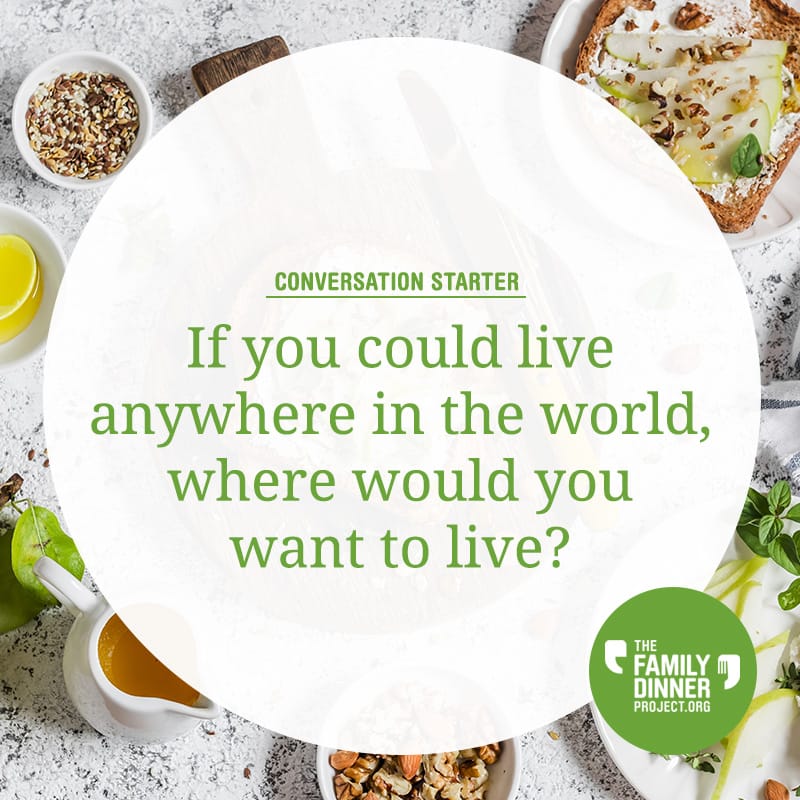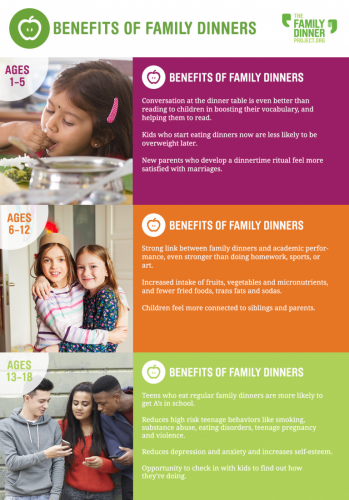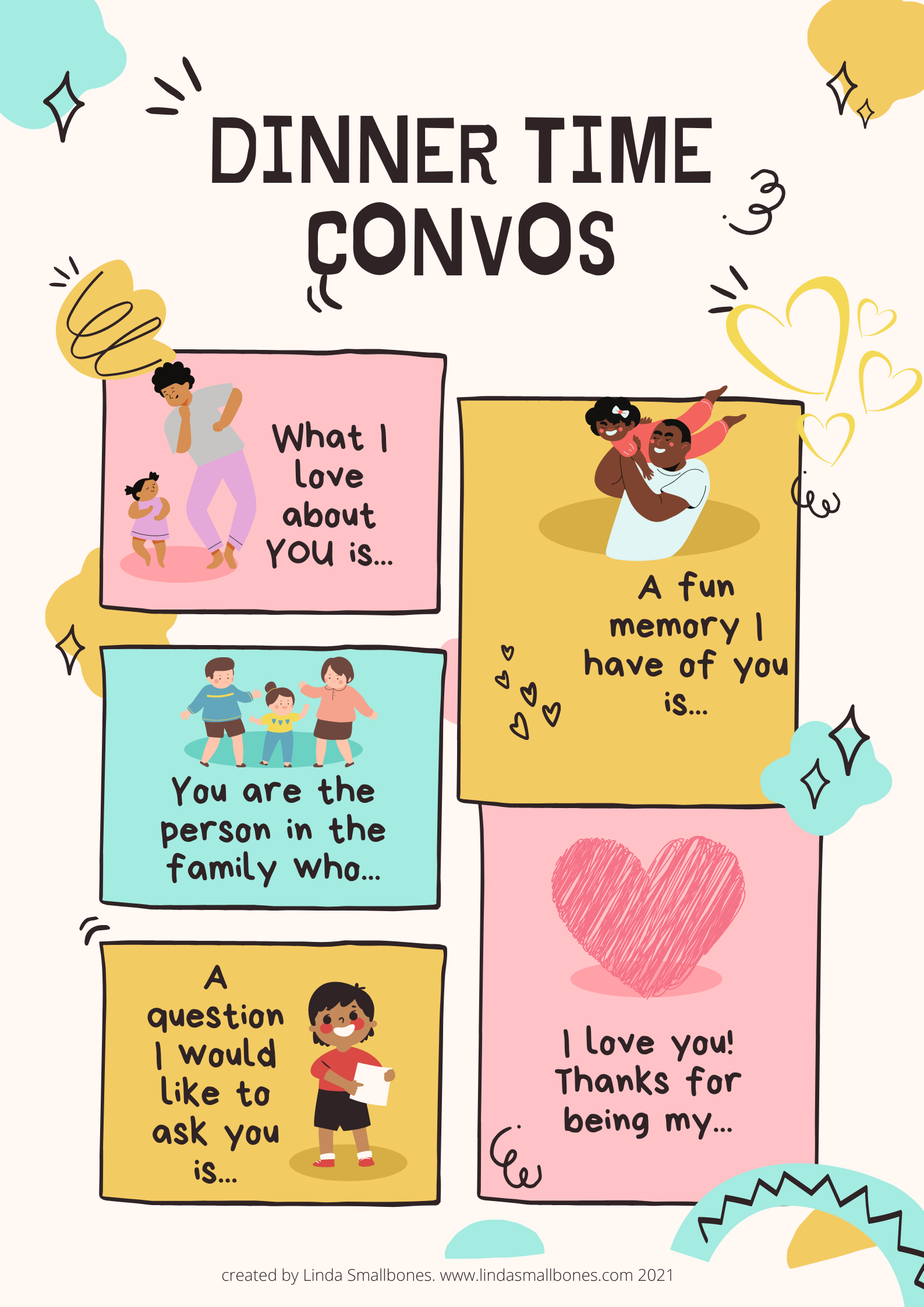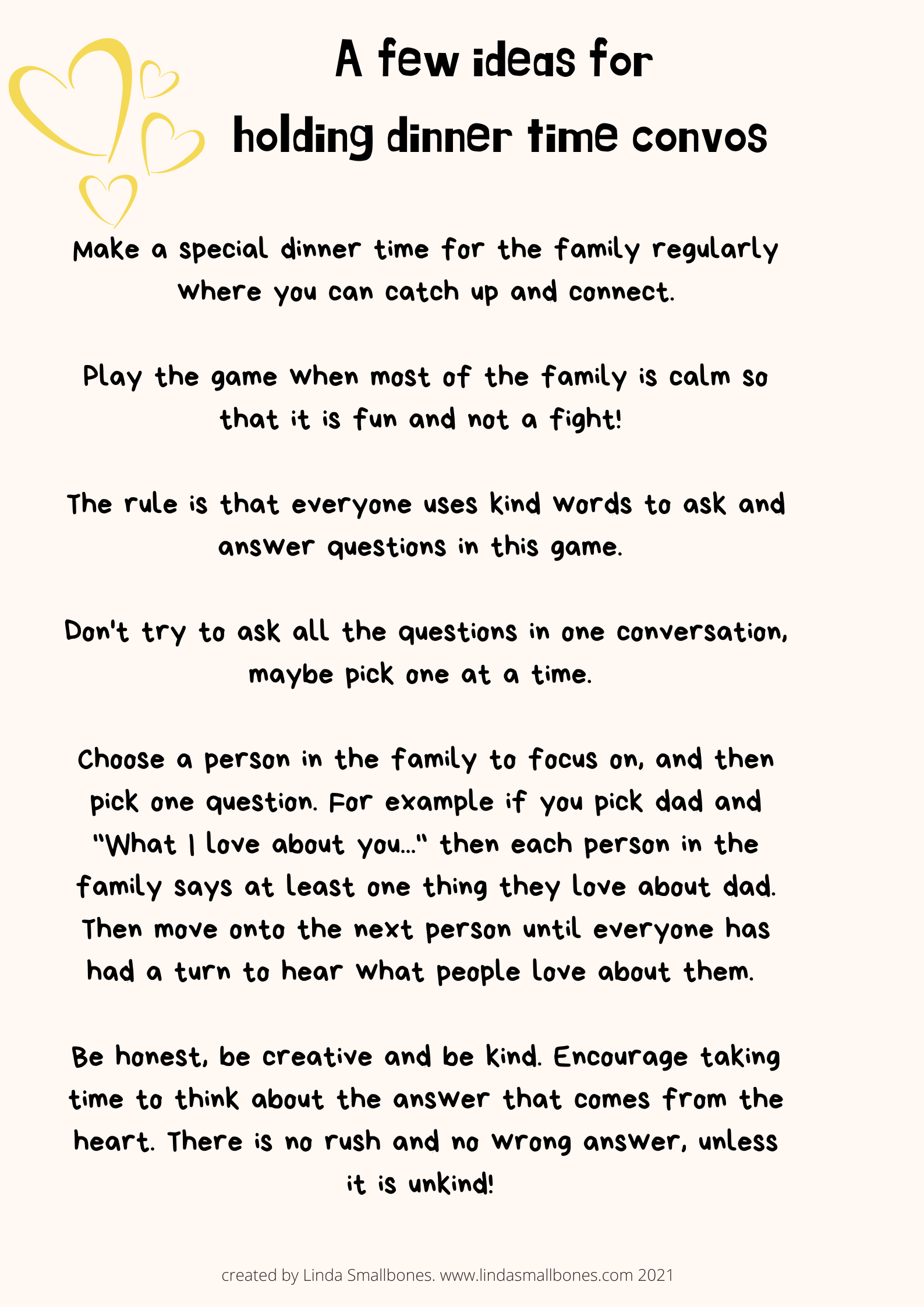Emotional Connection around the Table
Discover how regular family meals can boost academic performance, resilience, and health. Practical tools and tips for making mealtimes meaningful.
How do mealtimes in your home go down?
What would you like to change about them?
What if you were to have one meal a day together as a family in order to intentionally connect? What difference do you think it could make? According to research, it could make a significant difference.
The Family Dinner Project is a non-profit organisation started by clinical psychologist Anne Fishel, who has conducted extensive research on the impact of families eating meals together regularly. Their website is packed with practical ideas, from family meals to dinner time games and conversation starters. Here’s an example:

What are the benefits of regular family meal times?
Clever kids
Children who regularly eat at the table with family tend to develop larger vocabularies compared to those who don’t. A larger vocabulary supports children in learning to read earlier and more easily. For older children, frequent family meals have been linked to improved academic performance.
Healthier bodies
Family meal times benefit both kids and parents as more nutritious food is typically consumed when eating together. Establishing this habit early sets a standard that children are more likely to follow later in life when living independently.
Improved resilience and mood
Adolescents who frequently eat with their family are more resilient to negative peer influences and experiment less with substances. They also report higher levels of hope, improved mood, and greater resilience. Beyond these, family meals create lasting memories, fostering a sense of community and belonging that benefits everyone, not just the children.

A Word on Time Prioritisation
Many children harbour strong resentment toward the time their parents spend working. Prioritising one meal a day to put aside devices and give undivided attention to your children can be a simple yet impactful way to address this. It also benefits your own mental health!
Below is a tool I’ve developed to help parents with fun, connecting questions to spark meaningful dinner table conversations:

Let me know how it goes! I would love to hear your feedback about what works for your family!
